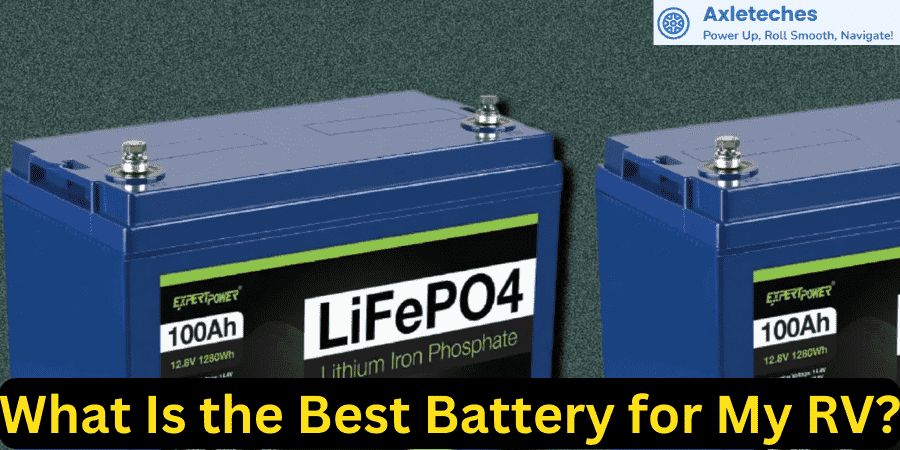Selecting an RV battery is like choosing the right partner to go on a road trip, meaning the choice should be made carefully. You have to make sure that all the devices and appliances you depend on are adequately charged when you are off the grid. Yet, due to the availability of so many types of batteries on the market, it might be confusing to make the right decision. That is why this guide will also assist you in understanding options and selecting the correct battery.
What is an RV Battery?
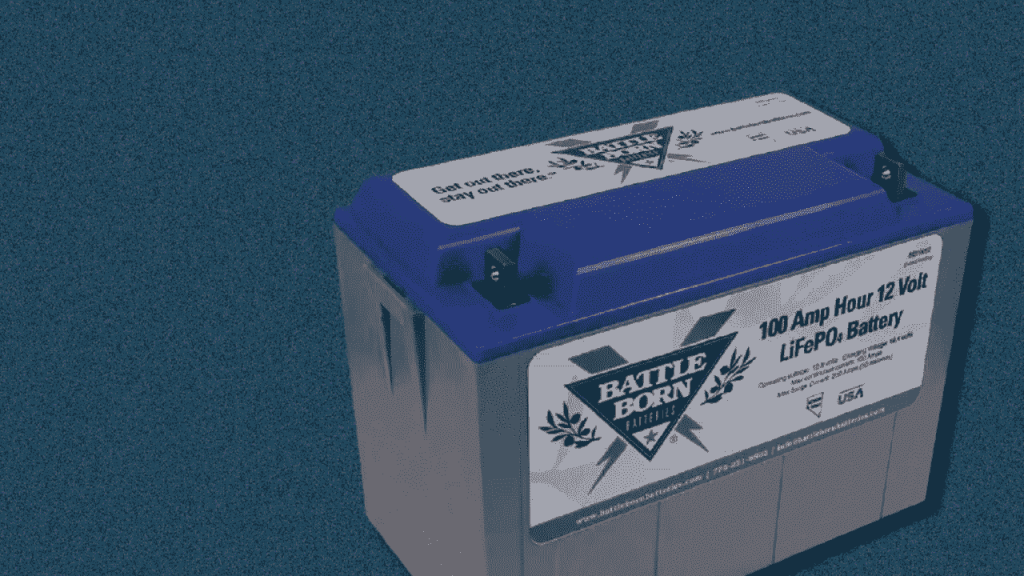
The RV battery is a key starting component that provides power to your RV’s electronics in cases where you are not plugged into an external power source. It is the lifeblood of any RV, from running lights or appliances to small gadgets you might have installed in your RV.
Key Functions and Uses
It must be pointed out that RV batteries contain electrical energy or power utilized for lighting, water pumps, refrigerators, and entertainment. They are required for use during boondocking, which is a process of dry camping, and this entails a lack of hookups.
Types of RV Batteries
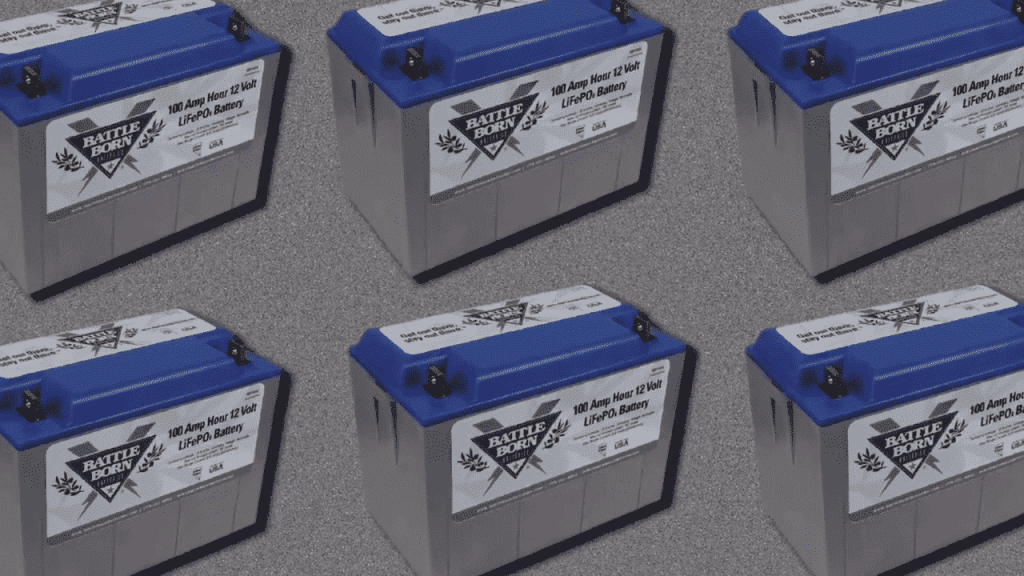
Lead-Acid Batteries
Most RV batteries are lead-acid batteries, and these are popular because they are cheap, though not very durable.
- Flooded Lead-Acid: These standard batteries contain a liquid electrolyte, which needs to be replenished from time to time.
- AGM (Absorbent Glass Mat): GM batteries are an example of lead-acid batteries closed that does not require any maintenance during their usage and are suited for operations in a vibrating environment.
Lithium-Ion Batteries
Lithium-ion batteries are the most modern RV battery technology out there. It provides larger energy density, longer duration, and lesser weight than lead-acid batteries.
Gel Batteries
Gel batteries are almost similar to the AGM batteries but have a gelled electrolyte. These are characterized by their durability and flexibility to cope with deep discharge.
Factors to Consider When Choosing an RV Battery
Capacity (Ah)
The storage ability of an RV battery is given in amp-hour (Ah) rank and depicts the energy capacity. This means that the more capacity of the battery, the longer it can power your RV compared to a battery with a lower capacity.
Voltage (V)
RV battery systems depend on the capacity needed or the load to be powered, but most are 12V or 6V. The decision on which will be more suitable depends on the electrical system of the RV plus the appliances the RV will be powering.
Cycle Life
The cycle life, therefore, gives out the number of cycles, or precisely discharging and charging a battery, it can go through before it starts to become less efficient. Life is closely related to the cycle, and life indicates how many cycles the battery has to go through.
Weight and Size
Think about the dimensions and the mass of the battery, especially if you have a small area or a restricted weight in your RV.
Maintenance Requirements
Flooded lead-acid batteries need water added to them at some point, while other batteries like AGM and lithium-ion batteries are considered maintenance-free batteries.
Cost
The budget parameters will always be a factor, but it is critical to strike a middle ground with regard to both cost and durability. Thus, the building’s owners might find that putting money into a superior-quality battery would be worth that extra cash in some cases.
Lead-Acid Batteries: Advantages and Disadvantages
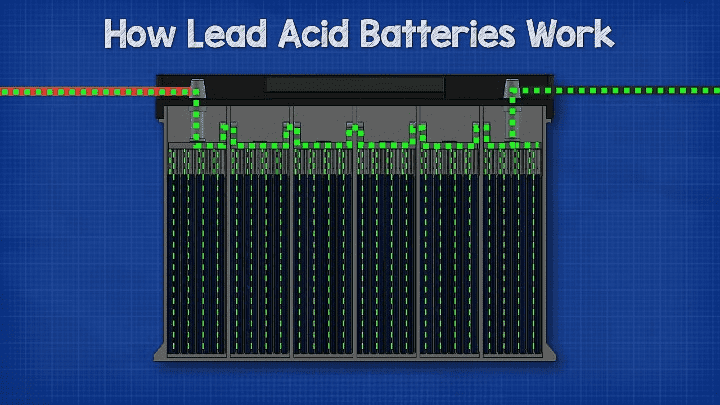
Advantages
- Affordable: Compared to the other types of insurance, they are generally relatively cheap.
- Reliable: Matching with the concept of advanced technology, It can be considered a proven technology because of its long-run implementation.
Disadvantages
- Heavy: Like lithium-ion batteries, but physically larger and slightly heavier.
- Maintenance: Requires regular upkeep.
Lithium-Ion Batteries: Benefits and Drawbacks
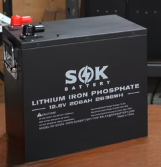
Advantages
- Lightweight: They are known to be much lighter than lead-acid batteries, and this makes them more preferred.
- Long Lifespan: The same can last up to ten times longer.
- Fast Charging: It has a faster charging rate than lead-acid.
Disadvantages
- Expensive: Higher upfront cost.
- Temperature Sensitivity: This can be affected with very high or very low temperatures.
Gel Batteries: Pros and Cons
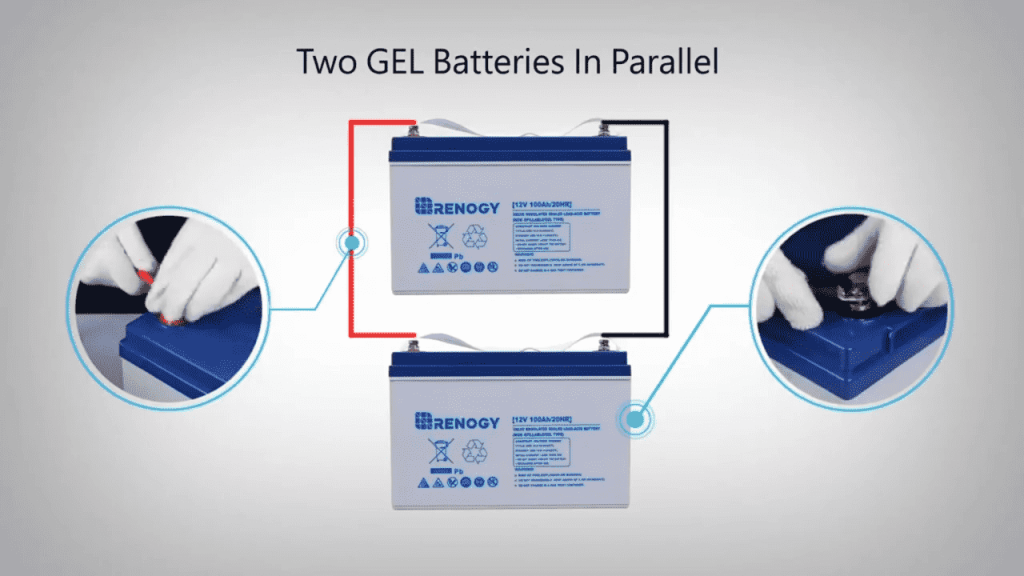
Advantages
- Low Maintenance: There is no need for water checking.
- Durable: Deep discharge frequencies that can be handled.
Disadvantages
- Costly: Pricier compared to flooded types of lead-acid.
- Sensitive to Overcharging: This may be at risk when overcharged to its maximum limit.
Comparing Battery Types
While selecting the battery type, one must look for battery performance, lifetime, and value for money. Lithium-ion produces better performance and a longer lifespan, although they are slightly more expensive than the other two. Lead-acid batteries are cheaper and call for frequent servicing, and they have a short life span compared to modern lithium-ion batteries.
Charging and Maintaining RV Batteries
The correct charging and maintenance of the battery is necessary in order to get the most out of an RV battery. The charger must be good quality and appropriate to the battery type to avoid overcharging the electrical connections. Inspect the connections daily and weekly and remove white corrosion from terminal points.
How to Extend Your RV Battery’s Life
To prolong the RV battery’s life, never drain it to its lowest and always keep it charged when it is not used. It is recommended that you monitor the state of charge and perform the so-called equalization charges where needed.
Final Words
Deciding on the right battery for the RV calls for the best decision if the trip is devoid of any hitches. Every battery type has advantages and disadvantages, from the cheapest lead-acid battery to the most expensive lithium-ion one. One should take into consideration his/her requirements, financial plan, and whether the appliances require frequent maintenance or not. This means that your RV and all related adventures will be powered up and trouble-free, all thanks to the right battery!
FAQs
How often should I replace my RV battery?
Most RV batteries last 3-5 years, depending on the type and usage. Regular maintenance can extend their lifespan.
Can I use a car battery in my RV?
While technically possible, car batteries are not designed for deep discharges like RV batteries. It’s best to use a battery specifically designed for RVs.
What is the difference between deep-cycle and starter batteries?
Deep-cycle batteries provide steady power over a long period, while starter batteries deliver a quick burst of energy to start an engine.
How do I know if my RV battery is bad?
Signs of a failing battery include reduced capacity, slow charging, and visible damage like bulging or leaks.
What should I do if my RV battery isn’t holding a charge?
Check for issues like loose connections, corroded terminals, or a malfunctioning charger. If the problem persists, it may be time to replace the battery.
